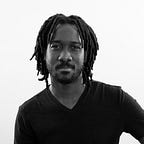DACA and The Great Divide
by Miya Ramos
Tricella Kanglie, a DACA beneficiary and CCNY junior, has lived in Jamaica, Queens since she was five years old. The student and her family migrated from the small country of Suriname in South America. When a doctor suggested Suriname’s climate might be the cause of a skin condition that Tricella suffered, the young woman’s parents trusted the doctor’s advice and moved to America. They initially moved into her aunt’s home in New York.
In September, President Trump rescinded President Obama’s executive order that created the Deferred Action for Childhood Arrivals (DACA). DACA gave Tricella a Social Security card, a working permit, a driver’s license, protection from deportation and a chance at a college education. Still she worries because DACA does not offer any long-term benefits.
She feels a great divide between American citizens and undocumented people in America. “I’ve been here since I was five. This is all I know. It sucks because the government doesn’t see us as people who live here… ” She continues, “My parents have built their whole life here, working hard. Both of my parents work off the books. My dad is doing construction because he only got a two-year working permit. My mom works two jobs.”
Tricella was her high school valedictorian in Queens, where she won a Dream US scholarship for DACA students. She was ineligible for financial aid and this was the only way she could pay for college. “To get certain loans you need to be a citizen. Even now, I’m kind of struggling thinking about my future. If Congress doesn’t come up with a permanent plan, I don’t know how I’m going to get a loan to pay for my masters program.”
DACA will not provide Tricella with a path to citizenship and she thinks the U.S government is not giving undocumented people enough opportunity in America. “There are so many people here with that same issue. So shouldn’t the government be doing something about it? If it doesn’t affect them directly, then they don’t know what’s going on.”
Now that President Trump ended the program, Tricella feels ambivalent about DACA because she thinks the government exposure of her personal information can put her at higher risk of deportation than other undocumented young people in America who did not have DACA.
Originally published at ccnyintroductiontojournalism.com on October 11, 2017.
